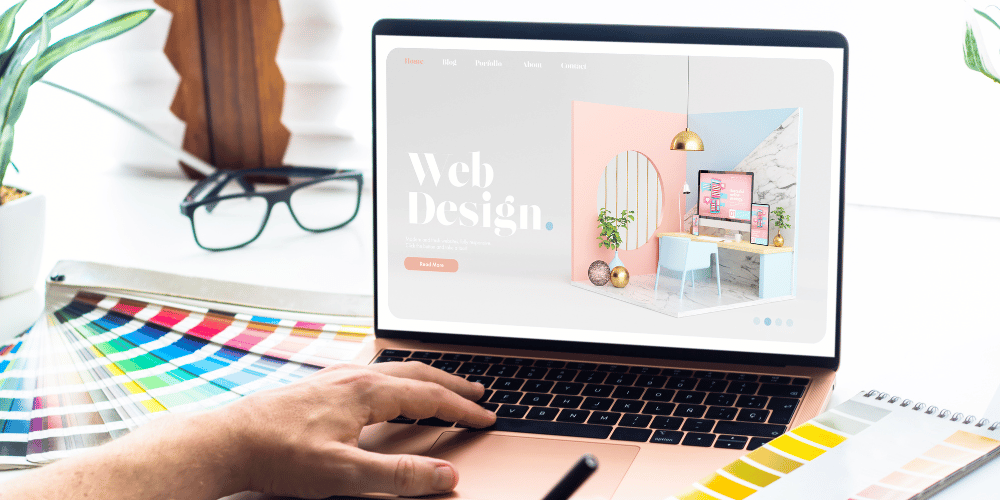Creating a Website Yourself vs. Hiring a Professional
In today’s digital age, having a website is almost a prerequisite, whether you’re an entrepreneur, a small business owner, a blogger, or an artist looking to showcase your work. A website is your virtual storefront, your online portfolio, and the primary means of connecting with a global audience. However, the question that often arises is whether to create a website yourself or hire a professional web designer. What many DIYers often overlook is that which goes far beyond the technicality of building a website –
Benefits of Creating a Website Yourself (DIY):
1. It’s Cost-Effective: One of the most significant advantages of a DIY website is cost savings. Many platforms, like Wix and Squarespace, offer free templates and tools, allowing you to get your website up and running without a substantial financial investment.
2. Full Control: Creating your own website means you have complete control over the design, content, and functionality. You can make instant changes and updates whenever you want, without having to go through a third party.
3. Learning Experience: Building your website can be a valuable learning experience. You’ll gain knowledge in web design, content management, and troubleshooting, which can be useful in the long run.
4. Quick Start: With DIY platforms, you can have a basic website up and running within a matter of hours or days. This is ideal for those who need a straightforward online presence without the complexity of custom development.
Benefits of Hiring a Professional Web Designer: Beyond Technical Expertise
While DIY website builders and templates have made it easier for individuals to create a web presence, they often fall short in delivering a well-rounded and effective website.
Many DIYers and individuals who are new to web development often underestimate the complexity and importance of various aspects involved in creating a successful website. Here’s a closer look at these considerations:
1. User Experience (UX) Design: Web designers are well-versed in creating user-friendly interfaces. They know how to structure content, navigation, and interactions to provide an optimal user experience. This ensures that your visitors can easily find what they’re looking for and navigate your site intuitively, increasing sales and conversion rates. Neglecting UX design can lead to a website that’s confusing or frustrating for visitors.
2. SEO Optimization: Search Engine Optimization (SEO) is essential for improving your website’s visibility in search engines like Google. Many web designers are knowledgeable about SEO best practices, including optimizing page load times, ensuring mobile responsiveness, and structuring content in a way that search engines can easily index. They can also help with keyword research and on-page SEO to increase your site’s chances of ranking higher in search results.
3. Marketing Copy: Effective web design goes hand in hand with persuasive and compelling marketing copy. Web designers often collaborate with copywriters or have a solid understanding of how to structure content that engages your audience and communicates your brand’s message effectively. They can help you craft content that not only informs but also converts visitors into customers or clients.
4. Visual Design: Aesthetics play a significant role in web design. Web designers have an eye for visual appeal and can create a cohesive and visually pleasing design that aligns with your brand identity. They can choose color schemes, typography, and imagery that enhance your website’s overall look and feel.
5. Customization: Professional web designers have the skills to create fully customized solutions tailored to your specific needs. They can incorporate unique features, functions, and interactive elements that make your website stand out. This level of customization is often beyond the capabilities of DIY platforms.
6. Scalability and Future-Proofing: Web designers plan for the future, ensuring your website can grow with your business or personal goals. They anticipate the need for updates and scalability, saving you from costly and time-consuming redesigns down the line.
7. Technical Troubleshooting: When issues arise with your website, a professional web designer can quickly diagnose and resolve them, preventing downtime and potential loss of visitors.
In essence, professional web designers are not just skilled technicians; they are well-rounded digital strategists. They understand the importance of harmonizing technical aspects, user experience, marketing, and visual design to create a website that not only looks good but functions effectively and speaks to your target audience. For those who are starting out or venturing into the online world for the first time, while DIY website builders can be a starting point, it’s important to recognize that creating a functional and effective website requires a skill set that goes far beyond the capabilities of website-building software. It’s an investment in the success and impact of your online presence.

